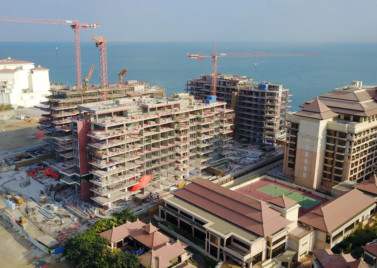
Since the real estate boom in the early 2000s, Dubai has increasingly been the target of fraudulent real estate schemes. One measure that Dubai has taken to prevent such schemes is through the enactment of trust account law in 2007. Commonly referred to as the escrow law, it establishes the basic rules for legalising developers and how investors’ money can be used in the development and sale of off-plan real estate. Under the law a developer selling units off-plan must submit an application to the Department of Real Estate Trust Accounts to open a trust account, where all amounts paid by purchasers must be deposited.
Prior to the law’s enactment, developers were essentially unregulated and could do what they liked with the funds received.
Checks and balances
Dubai’s trust account law was established under Law No 8 of 2007 and further supplemented in 2008 by the trust account regulations. The trust account law and subsequent regulations provide for a number of “checks and balances” to prevent developers from misusing monies paid off-plan.
What buyers should know about the law
* Developers must not sell off-plan units unless they are registered on the Register of Real Estate Developers and licensed to carry out real estate development.
* Developers must apply at the Department of Real Estate Trust Accounts to activate a trust account with an account trustee (a bank approved the department), and all amounts paid by purchasers must be deposited into the trust account. If a developer is involved in more than one real estate project, the developer is required to maintain a separate trust account for each project.
* Developers are obliged to use the payments made into the trust account exclusively for the project for which the payments were made and these monies can only be withdrawn if three conditions are met: 60 per cent of the project has been completed, the land has been fully paid and the Real Estate Regulatory Agency (Rera) approves the withdrawal.
Exemptions to these requirements can be negotiated depending on the facts.
* The bank is required to retain five per cent of the total amount paid into the trust account after the developer obtains the completion certificate for the project. The reserved amount may not be paid to the developer until one year after the units are registered in the names of the buyers or if the developer provides a bank guarantee for an equivalent amount. The reserved amount is used as a guarantee that the developer will promptly and effectively remedy defects in the property that are apparent on completion or which may become apparent within the first year after handover.
* A buyer making payments into a trust account has the right to examine and request copies of the account records, although the law does not indicate whether the copies are to be provided by the account trustee or the developer.
* A developer shall be removed from the Register of Real Estate Developers if construction of the project does not commence within six months of the date the developer is granted approval to sell the off-plan unit, unless the developer has an “acceptable excuse”.
It is important to note that the opening of a trust account does not actually guarantee the completion of the project by a developer.
Finally, Rera has now gone one step further in preventing fraudulent real estate schemes with the release of Circular Number 11-2016, which requires all companies operating in Dubai that wish to market real estate inside or outside the country to first obtain a permit. Rera will give the permit only if certain conditions are met, including obtaining an undertaking from the real estate broker that it will not receive any money on the developer’s behalf.











